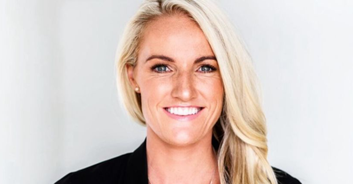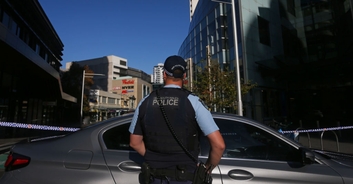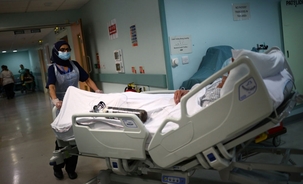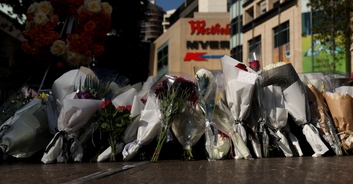A 13-year-old boy from Belgium has become the first person in the world to be cured of a deadly brain cancer.
At age six, Lucas Jemeljanova was diagnosed with diffuse intrinsic pontine glioma (DIPG), a very rare and highly aggressive type of childhood cancer that forms in the brainstem, according to the National Library of Medicine.
Per the Dana-Farber Cancer Institute, approximately 300 children a year are diagnosed with DIPG in the US, and, statistically, the cancer kills 98% of patients within five years of their initial diagnosis.
Children who are diagnosed with the condition are normally expected to live between nine and 12 months, but, Jemeljanova defied expectations after the tumor gradually vanished.

The young boy and his family traveled to France so that he could become one of the first patients to join the BIOMEDE trial which tests potential new drugs for DIPG, per a report.
Jemeljanova was randomly assigned to receive Everolimus - a type of chemotherapy drug - in a clinical trial, which is used to treat kidney, pancreas, breast, and brain cancer but has not been used successfully to treat DIPG.
The prescription drug - which is approved by the Food and Drug Administration (FDA) - works by blocking mTOR, a protein that helps cancer cells separate, grow and produce new blood vessels. This then prevents or slows down the growth of the cancer by stopping the cancer cells from reproducing and decreasing the blood supply to the tumor cells.
Doctors were afraid to stop the treatment regimen until a year and a half ago when the teen revealed he was no longer taking the drugs.

In an extraordinary development, Jemeljanova's tumor eventually completely disappeared.
The boy's doctor, Jacques Grill - head of the brain tumor program at the Gustave Roussy cancer center in Paris - was astonished by the results and said: "Over a series of MRI scans, I watched as the tumor completely disappeared," adding: "I don't know of any other case like him in the world," as cited by Daily Mail.
Exactly why Jemeljanova fully recovered remains a mystery. However, doctors believe that his "biological particularities" may have been a factor in his recovery. "Lucas's tumor had an extremely rare mutation which we believe made its cells far more sensitive to the drug," Grill shared.
Researchers are optimistic about what Jemeljanova's recovery may mean for other children, with Marie-Anne Debily sharing: "Lucas’ case offers real hope. We will try to reproduce in vitro the differences that we have identified in his cells."
The team wants to repeat his genetic differences in the organoids to see if tumors can be killed like the teen's was. "The next step will be to find a drug that has the same effect on tumor cells as these cellular changes," Debily said.
But the process won't be quick as Grill added: "On average, it takes 10-15 years from the first lead to become a drug – it's a long and drawn-out process."












